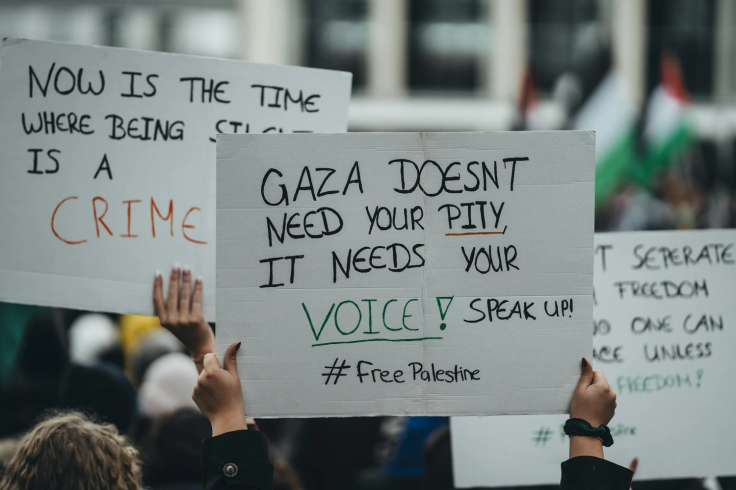U.S. House Committee Demands UCLA Documents on Antisemitism Ahead of Hearing, Criticizes University's Response to Campus Protest
ByIn a nation where diversity and inclusion are prized virtues, universities stand as bastions of enlightenment and progress. Yet, recent events at the University of California, Los Angeles (UCLA) have thrust the issue of antisemitism onto the national stage.
The U.S. House Education and Workforce Committee has turned its gaze towards UCLA, demanding transparency and accountability in the face of allegations of inadequate response to antisemitism on campus.

The Committee's Demands and Criticisms
Under the leadership of Representative Virginia Foxx, the Committee has issued a stern ultimatum to UCLA: turn over documents and communications related to antisemitic incidents on campus. The Committee's demand stems from concerns over UCLA's handling of a recent encampment set up in solidarity with the people of Gaza. Critics, including Foxx, lambasted UCLA's decision not to immediately intervene when the encampment was attacked by outside counter-protesters. The failure to protect Jewish students and address instances of antisemitism has ignited a firestorm of controversy and condemnation.
READ MORE : House Of Representatives Votes To Codify Broad Definition Of Antisemitism Into Federal Civil Rights Law
Chancellor Block Under Scrutiny
At the heart of the controversy lies UCLA Chancellor Gene Block, who finds himself under intense scrutiny. As one of three university administrators slated to testify at the upcoming congressional hearing titled "Calling for Accountability: Stopping Antisemitic College Chaos," Block's leadership and response to antisemitism will be under the microscope. The Committee's demand for documents includes communications between university administrators and students involved in the encampment, shedding light on UCLA's internal handling of the situation.
Campus Climate and Student Safety
The encampment incident has raised serious questions about campus safety and the climate for Jewish students at UCLA. Reports of students fearing for their lives as fireworks were launched into the tent area and barricades torn down paint a harrowing picture of the events that transpired. The delayed response by campus police and subsequent arrests of over 200 individuals have only added fuel to the fiery debate. The Committee's demand for documents is not merely a bureaucratic exercise but a quest for answers and accountability in ensuring the safety and well-being of all students on campus.
Historical Context and Ongoing Concerns
Antisemitism is not a new phenomenon at UCLA, nor is it unique to the campus. Representative Foxx cited a 2015 study revealing that a third of all Jewish students at UCLA reported experiencing blame for the actions of the Israeli government due to their Jewish identity. Such troubling statistics underscore the persistent challenges faced by Jewish students in an environment where bigotry and prejudice rear their ugly heads. The recent student council resolution calling for Chancellor Block's resignation further highlights the deep-seated tensions and divisions within the UCLA community.
Addressing Root Causes and Moving Forward
As the congressional hearing looms large on the horizon, stakeholders at UCLA and beyond must confront the root causes of antisemitism and work towards meaningful solutions. This entails not only holding individuals and institutions accountable but also fostering a culture of tolerance, respect, and understanding. Dialogue, education, and proactive measures are essential in combating antisemitism and creating a campus climate where all students feel valued, supported, and safe.
The spotlight shining on UCLA serves as a stark reminder of the pervasive nature of antisemitism and the urgent need for action. The Committee's demand for documents is a pivotal step towards uncovering the truth and instigating change. As the nation watches, UCLA stands at a crossroads, facing a reckoning that transcends its campus borders. The path forward requires courage, conviction, and a collective commitment to upholding the principles of diversity, equity, and inclusion. Only then can the shadows of hatred and intolerance be dispelled, allowing the light of understanding and acceptance to prevail.
© 2025 University Herald, All rights reserved. Do not reproduce without permission.








